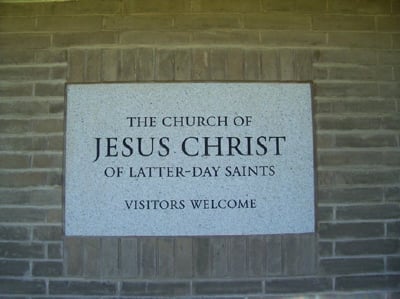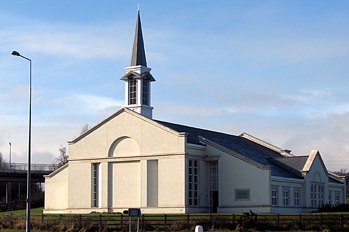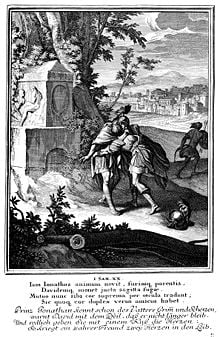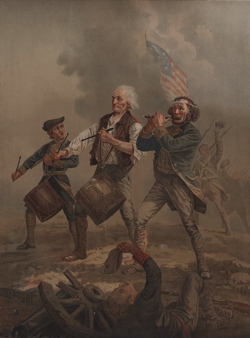
People in my congregation sometimes make reference to the idea that the LDS Church is the “only true Church” on the face of the earth. Such formulations nearly always make me uncomfortable. As I’ve stated here before, I’m basically a failed saint. My faith is as characterized as much by doubt as it is by certainty, and more by a hopeful desire to serve Jesus than confidence in my specific means of doing so.
But in at least one way I am sure we Mormons get it right: I am forced, every week, to go to church with people I wouldn’t otherwise go out of my way to befriend. One of them is someone who drives me up a tree. And like it or not, that is the gospel.
Mormonism operates under a strict “parish model”–kind of like Catholics used to, but on steroids. We don’t get the luxury of shopping around for the ward with the nicest building or the most established youth group or the coolest bishop (which incidentally happens to be mine, at least in the last point).
The Powers That Be draw up our ward boundaries without consulting us, and we are expected to suck it up.
In places like Utah, where you can’t spit without hitting a hundred Latter-day Saints, this policy isn’t that radical. There are neighborhoods in Salt Lake City where a ward might encompass just a few streets. So if your neighborhood is fairly homogeneous, your ward will be, too.

I’ve never lived in a ward like that, however. The first congregation I ever belonged to was in Princeton, New Jersey. (It spoiled me forever, by the way.) We had a shocking range of backgrounds in that community. The president of Lenox China was in my ward, as was a chief legal counsel for Bristol Meyers Squibb and a Wall Street wunderkind. But they worked in their callings alongside a number of first-generation Guatemalan immigrants and people living below the poverty level. We had diehard Republicans in their SUVs and tweedy academic Democrats in beat-up Volvos. And we had a number of people who couldn’t afford a car at all. We did not have obvious things in common with each other, but we had to figure out how to be a family.
That’s one thing about Mormonism that is truer than any religious organization I’ve ever seen. My religion forces me out of my comfort zone every single day. In the ward where I live now, our boundaries cover much of the urban core of downtown Cincinnati as well as affluent suburbs like Indian Hill. When my mom, who is a Lutheran, visited my church one Christmas, she remarked that in her congregation, people talked a lot about social justice and how to reach out to African Americans, but real live black people were pretty thin on the ground. At my church, she was pleasantly surprised to see racial diversity in action. My ward doesn’t fit the prophetic critique delivered by Martin Luther King, Jr. when he said that 11:00 on Sunday morning is the most segregated hour in America. Mormons may have a long way to go in race relations, but being intentionally lumped together in church is the only way to make real equality happen.
The racial and socioeconomic diversity of Mormon wards–or at least those outside heavily Mormon areas–is made possible by this un-American-sounding policy that we can’t choose where we go to church. Technically, yes, a Latter-day Saint can attend any ward she wants to. But if she desires a calling (a volunteer job) and a temple recommend, she has to attend the ward she’s zoned for, no kvetching allowed.
And believe me, sometimes it’s hard. In my ward there is a person who drives me crazy with right-wing politics and a tendency to make startling pronouncements about, for example, how the people of Haiti deserved their earthquake. I never know what’s going to come out of this person’s mouth, but I usually disagree with it. I would never choose to go to church with this person, but I’m glad that someone wiser than I am is making me do it. It’s forced me to learn a lot about myself, my beliefs, my own appallingly limited perspective, and what it means to be the church.
Walter Brueggemann points out in Mandate to Difference that a major part of why any church exists is to reach out, as Jesus would, to people who are least like ourselves. I’m frankly not sure that I’m a strong enough Christian to do that if left to my own devices. I’d rather go to my husband’s Episcopal church, where the people think like me, the sermons are first-rate, and a girl can get a really good cup of coffee.
But I am called to be here, working out my salvation alongside people who are radically different. And isn’t that what the Savior modeled?

